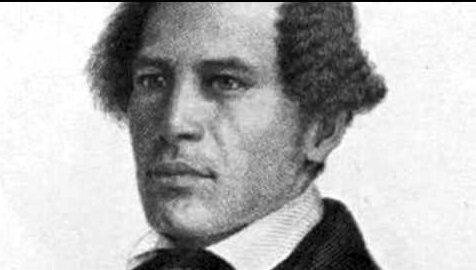By Eron Henry
It is a shock to some that there were blacks who owned black slaves.
This should not be a surprise. Up until the latter half of the 19th century, slavery was universal. Most societies practiced some form of enslavement, indentureship, serfdom or other forms of forced servitude.
Enslavement came largely out of war, conflict and conquest. Others were enslaved after falling into debt. The more powerful subjected the less powerful into servitude. In the Greek states and ancient Rome, enslavement was closer to indentureship. One was a slave for a period, a slave during “working hours,” having one own’s time, and one may purchase one’s freedom. In some instances, former slaves became political leaders, military generals and highly regarded philosophers and teachers.
What distinguished the enslavement of Africans by Europeans was its purpose, scale and brutality. While slavery was practiced in many societies, including in Africa, European enslavement of Africans was of another order, another animal, a mutation, a kind never known before or since.
The African slave trade was a profit venture. Entire cities and economies, such as Bristol and Liverpool in England and Amsterdam in the Netherlands, were built on the trade. England, Spain, France, the United States and other nations became rich and powerful because of sugar, tobacco, cotton and other products of African slave labor.
European enslavement of Africans was highly wasteful and destructive. Millions died on slave ships and while working the fields, factories and workhouses. Too many were executed or maimed for minor infractions or on mere suspicion. Whole groups and societies were devastated, some wiped out.
While not widespread or common, evidence suggests some blacks owned other blacks in the Caribbean and North America. Some black slave owners were former indentured servants or slaves.
An early example was Anthony Johnson. Sometime in the mid-1650s, Johnson, who was black, forced John Casor into slavery. Johnson had served his own indentureship, acquired property and his freedom and hired indentured servants, among whom was Casor. Johnson fought successfully in the courts of Virginia in the United States for Casor to become his slave when the latter wanted to leave his service, asserting he had completed his indentureship.

A well-known example is William Ellison. Formerly enslaved, Ellison gained his freedom, purchased property, owned slaves and became one of the wealthiest men in Louisiana. He owned approximately 1,000 acres of land and several dozen enslaved persons at his death.
Another was Anna Kingsley of Florida, African wife of a white plantation owner. Formerly enslaved by the man who became her husband, she became a landowner and slaveholder in her own right.
In a 1987 article in The Virginia Magazine of History and Biography, university professor Philip Schwarz says Archibald Batte “relied on slaves to perform much of the labor he needed…. In some respects he appears to have been typical of many other Virginia slave owners who owned a modest number of bondsmen, but in one regard this independent man was distinctly different – he was an Afro-American.”
Harvard Professor Henry Louis Gates, Jr., writes, “Free blacks owned slaves in Boston by 1724 and in Connecticut by 1783; by 1790, 48 black people in Maryland owned 143 slaves. One particularly notorious black Maryland farmer named Nat Butler ‘regularly purchased and sold Negroes for the Southern trade,’ Halliburton wrote.”
According to noted historian Carter G. Woodson, 12 percent of all free blacks in Virginia in 1830 owned slaves. Gates says in 1830, “3,776 free Negroes owned 12,907 slaves, out of a total of 2,009,043 slaves owned in the entire United States.”
There were practical reasons why some blacks owned blacks. Larry Kroger suggests black slave ownership was a form of protection of the enslaved. In Black Slaveowners: Free Black Slave Masters in South Carolina, 1790–1860, Kroger writes:
Among black masters, holding members of their family became a common form of ownership in South Carolina after 1820. Bondsmen could be freed only by the consent of the state legislature, and legislatures almost never approved those petitions from black slaveowners requesting manumissions. Slaves of black masters, whether family members or not, were subject to seizure for debt or to sale upon the master’s death. Thus to protect family members black masters entered into deeds of trust, especially when death seemed imminent. Such documents transferred legal title of the slave to a black friend or a sympathetic white and stipulated the conditions of ownership.
Fay A. Yarbrough, associate professor of history at the University of Oklahoma, says blacks owned slaves for benevolent and commercial reasons:
Benevolent slave ownership among African Americans is characterized by the purchase of relatives or friends. For instance, a free African American woman might purchase her husband in order to remove him from the threat of a cruel master. Or a parent might purchase his or her children for the same reason. Because some state legislatures, such as the 1806 Virginia legislature, required emancipated slaves to leave the state, a woman’s continued ownership of her spouse, or a parent’s continued ownership of his or her children, was often the only way for a family unit to remain intact within the state.
There were other arrangements:
[A] slave might accumulate his or her purchase price through the practice of hiring out and approach a free black person to buy him or her with that money with the understanding that the slave would live as a free person. Thus, these African American owners were not necessarily enslaving people for their labor, but purchasing relatives or friends to keep families together or to help people move out of slavery.
Some blacks owned blacks for pecuniary reasons. Yarbrough argues “that at least some black slaveholders…held slaves for precisely the same reason as their white counterparts—to earn money.” Of William Ellison and others of his kind, she said slaves “were unlikely to describe their owner as benevolent.”
Jamaica black slave owners
Jamaica had blacks who owned slaves. Arnold Bertram, writing in the Daily Gleaner in August 2017, notes:
The first black slave owners were the Maroons, whose leaders signed a treaty with the British in 1739 that obliged them to return to their former owners all of the enslaved runaways who had joined their ranks within three years and “to suppress and destroy all other … rebellious Negroes”. As a reward, a number of Maroons were allowed to own slaves in the post-treaty period. It seems that the Maroons became such enthusiastic slave owners that the Assembly, in 1744, made the sale of slaves to the Maroons illegal. The practice continued as was confirmed in a report by the superintendent general of Maroon towns in 1773 of Maroon officers owning slaves that were unaccounted for.

Well known author Malcolm Gladwell, whose mother is Jamaican, discovered that a black or mixed-race Jamaican ancestor, Margaret Mullings, likely owned slaves. Her will, discovered by Gates, reads in part:
My desire is that all my funeral expenses and my just and lawful debts should be discharged and satisfied as soon after my death as possible out of any money I may die possessed of or may be due my estate. And if that should not be sufficient, then the Negroes I may die possessed of shall work in jobbing or otherwise and the money arising from such labor shall be applied for the purposes already mentioned.
Gaia Goffe writes of a Jamaican ancestor:
That a man who had been a slave himself but had been lucky enough to be freed should later become a slave owner and an exploiter of free labour, is both shocking and ironic. I guess we should not be shocked that those who were once the oppressed in the Caribbean, and in Africa and in Asia, too, later became oppressors themselves.
She points to yet another ancestor:
I AM A DESCENDANT OF SLAVES WHO owned slaves. My fifth great grandmother, an African woman named Nancy, had been a slave but was fortunate enough to be freed from bondage in 1814, twenty years before slavery was abolished in Jamaica in 1834. But instead of opposing slavery, Nancy chose, bizarrely, to become a slave owner herself. Freed by Joseph Clemetson, the white slave master who owned her and the three “mulatto” children she had with him – James, Richard and Robert – Nancy decided to use her liberty and the money given her as part of her emancipation, or manumission, to become a slave master, as did other black and coloured people who had once been slaves.
According to The Sun, British singer, disc jockey, radio host and TV presenter, Marvin Hughes, who is of Jamaican descent, said “he expected to find links to slavery in his family’s past – but never imagined his relatives would have been the owners.”
He is amazed:
Never did it cross my mind that my four times great grandfather would have been a slave owner. I didn’t even know that black people had slaves. I’d like to think that my four times great grandfather, who was a black man, who was a free man also, I’d like to think he would have treated them respectfully and treated them as human beings and not as animals.
Eron Henry is author of Reverend Mother, a novel. Ole Time Sumting blog was recognized with an Award of Merit by the Religion Communicators Council in April 2018. You may listen to his most recent podcast on Soundcloud or YouTube.
This why the case for reparations cannot be supported by any honest person. If we are demanding reparations from the United Kingdom, then we have to demand reparation from the black countries who supported the slave trade. Black slave owners are just as guilty as their white counterparts.
The case can be made. “3,776 free negroes owned 23,907 slaves, out of a total of 2,009,043 slaves owned in the entire United States.” This is just one country. Black slave ownership was minuscule. And remember, some owned relatives as the only means to keep them from servitude by others. They were “owned” but essentially free, to the extent blacks could be free in such societies. Black ownership lets no one off the hook for reparation, in the same way a mass murderer is not let off the hook because others kill a victim or two. European enslavement of Africans was on a mass scale that destroyed the lives of millions as against the few thousand by black slave owners. They developed a mass market for enslaved persons, a type not known before or since.
Thank you for your article to which I would add that the church in the Caribbean also owned slaves and indeed black leaders of Christian congregations who had been slaves owned slaves. However, God has a wonderful way of reversing things for the “black church” of the Caribbean was to lead in the quest for the abolition of that slavery in which they had participated.